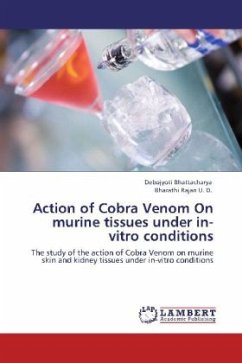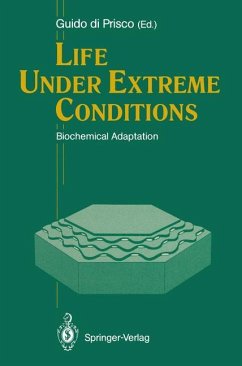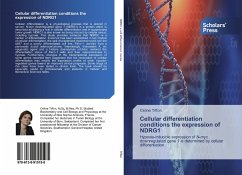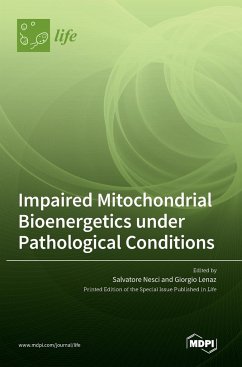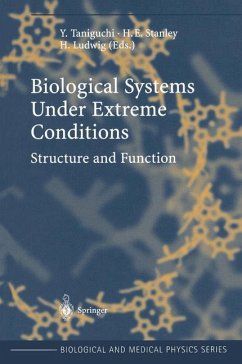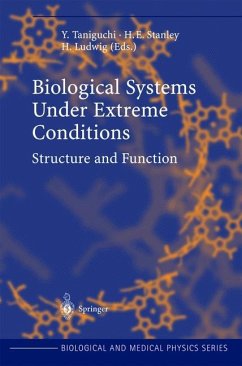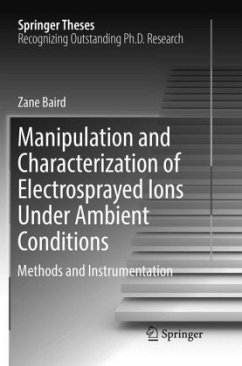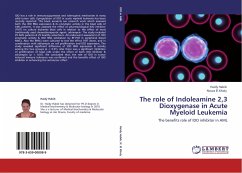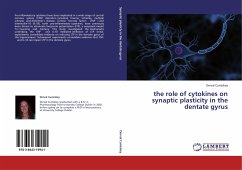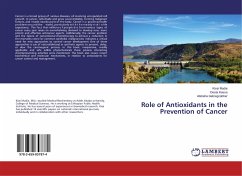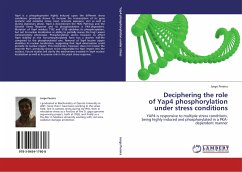
Deciphering the role of Yap4 phosphorylation under stress conditions
YAP4 is responsive to multiple stress conditions, being highly induced and phosphorylated in a PKA-dependent manner
Versandkostenfrei!
Versandfertig in 6-10 Tagen
52,99 €
inkl. MwSt.

PAYBACK Punkte
26 °P sammeln!
Yap4 is a phosphoprotein highly induced upon the different stress conditions previously shown to increase the transcription of its gene (osmotic and oxidative stress, heat, arsenate exposure, etc) as well as during stationary phase. Yap4 is downstream the HOG Pathway and the General Stress Response and its phosphorylation is PKA-dependent. Mutation of Yap4 residues T192 and S196 abolishes its phosphorylation, but not its nuclear localization or ability to partially rescue the hog1 severe osmosensitivity phenotype. Phosphorylation seems, however, to affect Yap4 stability as the non-phosphorylat...
Yap4 is a phosphoprotein highly induced upon the different stress conditions previously shown to increase the transcription of its gene (osmotic and oxidative stress, heat, arsenate exposure, etc) as well as during stationary phase. Yap4 is downstream the HOG Pathway and the General Stress Response and its phosphorylation is PKA-dependent. Mutation of Yap4 residues T192 and S196 abolishes its phosphorylation, but not its nuclear localization or ability to partially rescue the hog1 severe osmosensitivity phenotype. Phosphorylation seems, however, to affect Yap4 stability as the non-phosphorylated form has a shorter half-life compared to the phosphorylated one. Removal of Yap4 leucine zipper abolishes its nuclear localization, suggesting that Yap4 dimerization could precede its nuclear import. This mechanism, however, does not involve the importin Pse1, previously shown to be responsible for Yap1 import into the nucleus. Future studies will clarify the mechanisms involved in Yap4 nuclear localization as well as its precise role in the yeast stress response.



